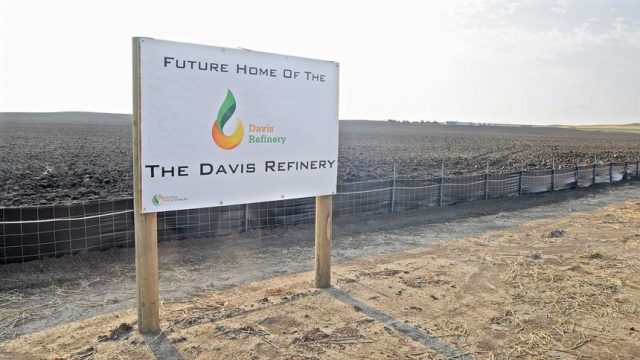Regulations Should Facilitate Industry Not Block It

Regulations put in place to govern the development of things like oil pipelines and refineries were intended to facilitate those projects, not block them.
The point was not to inhibit the build-out of that sort of infrastructure, which serves the production of energy products we all use, but rather to ensure it is done safely and responsibly.
Sadly, ideologically blinkered activists are today using the regulatory process, and the court system, to roadblock projects they have political objections to.
Case in point, “The Dakota Resource Council and the Environmental Law & Policy Center have filed an appeal of the decision by the North Dakota Public Service Commission to dismiss their complaint against Meridian Energy,” Bismarck Tribune reporter Amy Dalrymple writes.
[mks_pullquote align=”left” width=”300″ size=”24″ bg_color=”#ffffff” txt_color=”#000000″]The process needs to allow for criticism and objections, of course, but at some point there has to be a finish line too.[/mks_pullquote]
The issue at hand is a simple one. Meridian Energy is in the process of building the Davis Refinery in southwest North Dakota. State law requires that facilities of that sort with a capacity of over 50,000 barrels per day be permitted by the Public Service Commission (in addition to all the other state and regulatory hoops they must jump through). The Davis Refinery’s planned capacity, which admittedly has been a bit of a moving target as the project has developed, is 49,500 barrels per day.
Thus they are clearly under the threshold, and the PSC has no jurisdiction. The PSC even consulted with an administrative law judge who concluded they have no jurisdiction.
But the DRC and the EL&PC are suing anyway, despite clearly having no case.
Because the point here isn’t really to ensure compliance with the law, or the safe and responsible development of the refinery, but to make building the refinery more expensive.
Again, the regulatory process exists to facilitate the building of refineries. These groups abuse it to try block that construction through a sort of war of attrition.
These same groups are also targeting the Davis Refinery project through our state’s water permitting process.
Oh, and the air quality permit too.
If these groups want to have a debate over whether North Dakota’s laws regulating the construction of refineries, not to mention those protecting water and air quality, are too lax then fine. We can have that debate. The proper venue is in the state Legislature. I’m sure they’d like the laws to be much more onerous than they are.
But outside the legislature, where the laws are put into practice around real projects upon which the livelihoods of real people are dependent, there needs to be some upper limit on how much of this legal activism can go on.
The process needs to allow for criticism and objections, of course, but at some point there has to be a finish line too.




